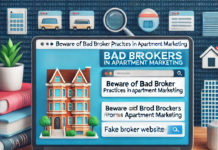If you check your inbox, how many cold email requests do you have from outreach bloggers promising backlinks from sites with high DA rankings? If you manage a blog, then you probably receive a couple of these emails every day. Naturally, all of this outreach begs the question, what is domain authority (DA) and does DA matter?
Interestingly, a recent Twitter conversation around improving DA sparked some controversy around the topic. Hardcore SEO experts demeaned the question about improving DA from a blogger because Google doesn’t include DA as a ranking metric. However, the informed blogger notes that brands value DA, which creates a catch-22. As the article notes, misunderstanding of DA within the non-SEO marketing world helped develop this unrelenting reliance on domain authority for brands attempting to build influence.
“The truth is, not only is it a mistake to think Google uses or values DA, but it is very harmful to the brand and the publisher to think this way. Why? Because the only reason this is valued at all is for the purpose of paying for links, which is directly against Google’s webmaster guidelines.”
So, what is domain authority and how did it create this mystic that generates those handful of spammy emails we all receive every day?
What is Domain Authority?
The SEO software company Moz created domain authority in an effort to predict the likelihood that a website will rank on SERPs (search engine result pages). As MOZ notes, DA is not a proprietary metric leveraged by Google in search rankings. However, the various underlying factors that Moz leverages to create a site’s domain authority include components of Google’s ranking algorithm.
“The actual Domain Authority calculation itself uses a machine learning model to predictively find a “best fit” algorithm that most closely correlates our link data with rankings across thousands of actual search results that we use as standards to scale against.”
Ultimately, a site’s domain authority ranges from 1 to 100. New sites with fresh domains start on the low end. Conversely, the largest sites in the world rank very high. For example, Google.com has a 95 DA. The purpose of DA helps marketing teams determine the likelihood that content on their site will rank against the competition. As a result, the higher the domain, generally, the easier it will be to rank for various search terms.
Additionally, and an important reason why people have been drawn to domain authority is its implied ability to help predict SERPs. At the core of SEO activities is the desire to improve rankings, so DA provides a generally accepted metric that helps with this underlying endeavor. However, there are alternatives to DA to help understand your ability to rank. For example, tools such as Citation Flow and Trust Flow from Majestic or Domain Rank and URL Rank from Ahrefs help marketing professionals gain the same or similar understanding of the power of their website.
How does Domain Authority work?
Domain authority rankings help compare websites against each other. Moz developed the based on another proprietary tool called the Link Explorer. The Link Explorer indexes the web based on machine learning calculations that somewhat mimic the known factors that Google includes in their ranking algorithm.
-
DA Focuses on Backlinks
One of the most well known aspects of both rankings is backlinks. For example, Moz notes linking root domains and the number of total links to a site as callouts when discussing the DA ranking factors. As a result, domain authority works by increasing the value that your site provides (albeit through the eyes of search algorithms).
The spammy outreach emails gain traction because an easy way to improve the perceived value of your site is to increase the number of backlinks on other high ranking sites. However, there is a right and wrong way to build links. Unfortunately, the easy way to build backlinks is the wrong way because it does not yield sustainable results. For example, if you previously engaged in murky link building, these tactics now negatively impact your DA, so take some time to remove bad backlinks. Likewise, if you conduct backlink building tactics that are currently in the gray area, it seems likely that Google will eventually frown on these activities in the future.
-
Improve DA with Solid SEO Activities
Fortunately, the best way to develop quality backlinks aligns with SEO best practices. For example, start by creating high quality content. As you create unique content that offers value to your audience, it will gain traction and other sites will link to it. Additionally, as you build your portfolio of content, you can engage in guest blogging for related fields and drive more quality backlinks to your site.
Finally, leverage other facets of digital marketing to drive awareness of your content. Although not high ranking factors, social engagement (such as likes or retweets) do positively impact your DA (for both Moz and Google). So, work with your social media channels to create engaging content that will drive clicks and likes.
-
Align SEO Efforts with Google’s Underlying Thinking
Google openly discusses the underlying rationale behind their powerful search algorithm. Google operates to help organize the world’s information, which means providing searches with the most relevant and accurate SERPs upon each and every search query.
“With the amount of information available on the web, finding what you need would be nearly impossible without some help sorting through it. Google ranking systems are designed to do just that: sort through hundreds of billions of webpages in our Search index to find the most relevant, useful results in a fraction of a second, and present them in a way that helps you find what you’re looking for.”
As a result, MOZ created domain authority to help everyday people determine their understanding of their ability to rank for various search terms. Ultimately, building domain authority aligns with SEO best practices and developing a workflow that touches on content marketing, technical SEO and social media marketing.
- Develop Great Content & Links Will Come
- Engage in Link Building Activities Like Guest Blogging
- Conduct a Technical SEO Audit & Ensure You Content is Visible to Search Engines
- Share on Social
Does DA matter?
Yes and no.
DA is a tool and like other tools, it depends on how you use it. For example, DA doesn’t matter if you endlessly pursue improving your domain authority. Simply responding (and paying) for backlinks to all of these outreach emails will not improve your ranking because you’ll end up with spammy root domains linking to your site.
Conversely, if you leverage domain authority rank to enhance your SEO workflow, then DA matters because you’ll be improving the SEO foundation of your site. Most importantly, as your SEO improves, your business will improve as well. Like Moz noted, the end game of the DA ranking is to predict how a site will rank for a term on actual search engines (which basically means Google). So, improving your DA means you’ll increase your likelihood to rank for new terms.
For businesses, this matters because if you want to launch new products or services, customers will be more likely to see your content around these terms. For bloggers or influencers, this means your site has a better likelihood to rank for new content topics and generate more traffic (which generally means better paid sponsorships or ad revenue).
So, the pursuit of a high DA score does not matter, but DA does matter as a means to an end (assuming your end goal is a better business).





